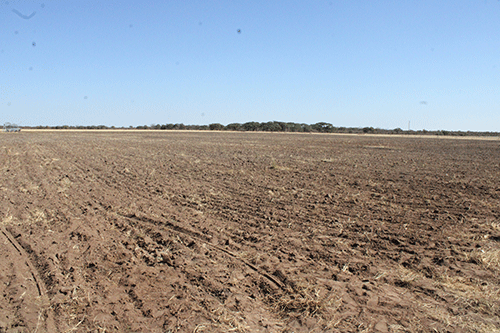Hilma Hashange
ONDERA FARM – About N$2.3 million was pledged towards the integrated food systems project at the Ondera resettlement farm in the Guinas constituency of the Oshikoto region.
A fundraising luncheon was held at the farm on the 16th June, where various stakeholders pledged, both monetary and skills transfer, towards the establishment of the project, which will boost the productivity at the farm.
According to Oshikoto chief regional officer Christella Mwenyo, the aim of the project is to improve the livelihoods of the community members through the integrated food system.
“The project is school as well as community based and aims to supply food to the community and improve food systems,” said Mwenyo, adding that the project emanated from a memorandum of understanding that was signed between the council and the World Food Programme (WFP) in 2021 to address food security in the region.
According to the country director of WFP, George Fedha, the Ondera community was chosen for the project as they showed a level of commitment to work and earn a living.
“We have a world food crisis in our hands, Namibia has historically grown its own food before, so it can be done. At Ondera, there will be a milling plant, so soon we will be baking and eating bread. It is baby steps but we will get there,” he said.
The WFP has pledged a whooping N$2 million towards the project which will be done in phases. Burmeister and Partners will be the consulting engineers for the project.
Oshikoto regional governor Penda Ya Ndakolo, who officiated the launch of the project, said hunger undermines growth and the country through its various national development goals such as the Harambee Prosperity plans 1 and 2.
He said Namibia has always committed itself to eradicate hunger and poverty.
“Namibia has made tremendous progress towards achieving its goals such as the establishment of school feeding programmes but challenges such as climate change have affected the production of food in the country.
However, despite these challenges, Oshikoto has the potential to become the bread basket of the country and an agricultural hub. I therefore urge the Ondera community to conceptualise on the project in order to attract more investors,” said Ya Ndakolo.
The governor commended the stakeholders involved in the project and issued a clarion call to potential investors to consider complementing government efforts.
Jan Haneb, an administrative officer from the Ondera farm, said that government relocated the community to Ondera after purchasing the resettlement farm.
“As the saying goes, a hungry man is an angry man. Our government did not want us to be angry so they relocated us to Ondera. In 2013, there were 263 members who were relocated and trained on how to farm and grow their own food,” Haneb said.
He added that the farm was productive up until 2016 when the electricity supply to the farm was cut off.
“The boreholes depend on electricity because if there is no electricity, there is no water. After the electricity supply was cut off, we had planted but could not harvest. We didn’t give up, we kept informing the government about our challenges and finally we got solar panels so we do not need electricity anymore,” he added.
Haneb further said the community mainly depends on social grants, as many of the youth are unemployed.
He is, however, grateful for the project as it will keep the youth occupied.
“The Oshikoto regional council has really done a great thing for our community, the day has finally arrived and we are very happy and thankful,” said a delighted Haneb.
The farm currently has 445 households of the Hai //om from the San community and covers approximately 7 140 hectares.
There are 10 boreholes and four solar systems at the farm which mainly grows tomatoes and maize.



